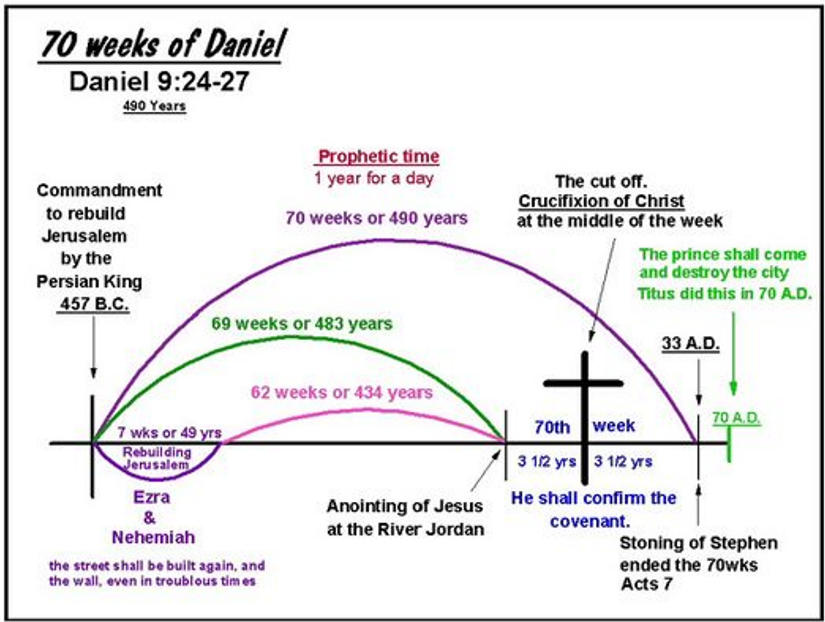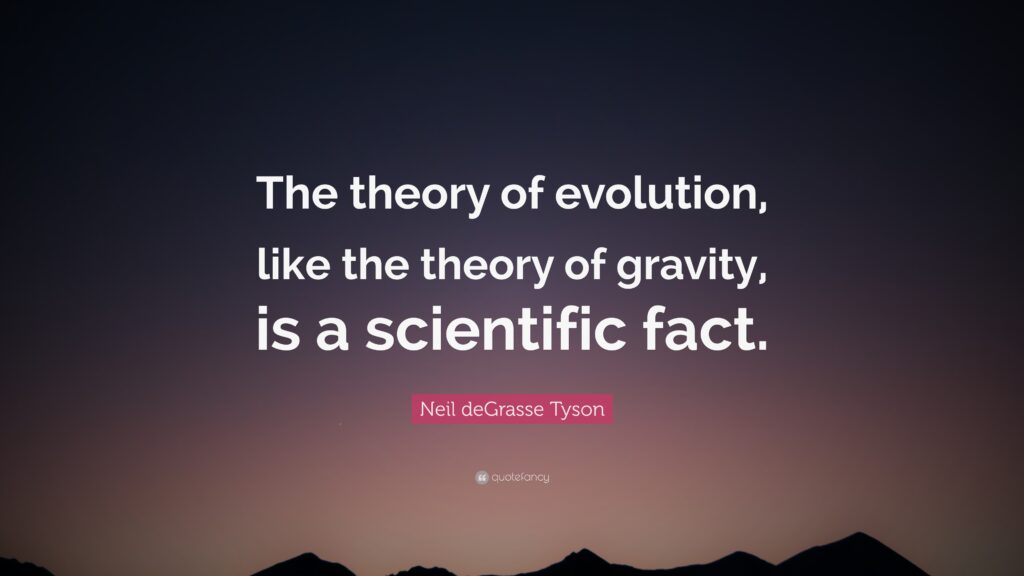Jesus Is the Resurrection
The apostle Paul wrote that the resurrection from the dead is the cornerstone of the Christian faith.
But if there is no resurrection of the dead, not even Christ has been raised; 14 and if Christ has not been raised, then our preaching is vain, your faith also is vain. 15 Moreover we are even found to be false witnesses of God, because we testified against God that He raised Christ, whom He did not raise, if in fact the dead are not raised. 16 For if the dead are not raised, not even Christ has been raised; 17 and if Christ has not been raised, your faith is worthless; you are still in your sins. 18 Then those also who have fallen asleep in Christ have perished. 19 If we have hoped in Christ in this life only, we are of all men most to be pitied. 20 But now Christ has been raised from the dead, the first fruits of those who are asleep. 1 Corinthians 15:13-20 (NASB)
Jesus offered himself as an offering for our sin by dying on the cross. Without the resurrection from the dead, he would be just another tragic and delusional historical figure who thought he was something special, when he was only a man, just like everyone else. However, Jesus’ glorious resurrection was proof that his sacrifice had been accepted by his Father in heaven, who vindicated him in the eyes of his disciples. His Second Coming at the culmination of time will glorify and vindicate him in the eyes of everyone else.
Jesus foretold his own resurrection on multiple times. He told his disciples that he would be put to death on a cross and rise again.
And he began to teach them that the Son of Man must suffer many things and be rejected by the elders and the chief priests and the scribes and be killed, and after three days rise again. Mark 8:31 (ESV)
He told them that he would be raised from the dead as a sign prefigured in the book of Jonah.
But he answered them, “An evil and adulterous generation seeks for a sign, but no sign will be given to it except the sign of the prophet Jonah. 40 For just as Jonah was three days and three nights in the belly of the great fish, so will the Son of Man be three days and three nights in the heart of the earth. Matthew 12:39-40 (ESV)
He told his enemies that if they destroyed the temple of his body, God would raise him up again.
The Jews then said to Him, "What sign do You show us as your authority for doing these things?" 19 Jesus answered them, "Destroy this temple, and in three days I will raise it up." 20 The Jews then said, "It took forty-six years to build this temple, and will You raise it up in three days?" 21 But He was speaking of the temple of His body. 22 So when He was raised from the dead, His disciples remembered that He said this; and they believed the Scripture and the word which Jesus had spoken. John 2:18-22 (NASB)
Jesus told Martha that he would raise Lazarus from the dead because he was and is the embodiment of the resurrection.
Martha then said to Jesus, "Lord, if You had been here, my brother would not have died. 22 "Even now I know that whatever You ask of God, God will give You." 23 Jesus *said to her, "Your brother will rise again." 24 Martha *said to Him, "I know that he will rise again in the resurrection on the last day." 25 Jesus said to her, "I am the resurrection and the life; he who believes in Me will live even if he dies, 26 and everyone who lives and believes in Me will never die. Do you believe this?" John 11:21-26 (NASB)
He promised his disciples that one day he would raise each of us from the dead.
And this is the will of him who sent me, that I should lose nothing of all that he has given me, but raise it up on the last day. 40 For this is the will of my Father, that everyone who looks on the Son and believes in him should have eternal life, and I will raise him up on the last day.” John 6:39-40 (ESV)
Not only did Jesus rise from the tomb after dying for our sins, but he is also the Resurrection. Those who put their faith and allegiance in him will participate in his resurrection both now, in a spiritual sense, and physically at the Second Coming. Jesus is the resurrection and the life!
Glorification
As I covered previously, our great salvation affects all three parts of our being – spirit, soul, and body. The resurrection is the final installment of that salvation which begins with the new birth, a spiritual resurrection. When we are physically raised from the dead, our bodies, which are presently still under Adam’s curse of death, will be gloriously renewed so that we finally will be completely free from every vestige of the destructive power of sin and death. Our bodies will experience glorification.
Now I say this, brethren, that flesh and blood cannot inherit the kingdom of God; nor does the perishable inherit the imperishable. 51 Behold, I tell you a mystery; we will not all sleep, but we will all be changed, 52 in a moment, in the twinkling of an eye, at the last trumpet; for the trumpet will sound, and the dead will be raised imperishable, and we will be changed. 53 For this perishable must put on the imperishable, and this mortal must put on immortality. 1 Corinthians 15:50-53 (NASB)
This is our hope and expectation in Christ, who promised to raise from the dead each of us who believe.
Two Resurrections
As with most things God does, the resurrection is more “complicated” than it first appears. Creation has fantastic complexity, depth, precision, and variety. After centuries of scientific inquiry, we have yet to fully comprehend the “fearfully and wonderfully made” bodies God created for his people. To deflect honor and glory from God, man accepted Satan’s lie called evolution, which is foolishness. Any right-thinking person knows instinctively that precision and complexity does not randomly appear out of chaos. In a similar fashion, the resurrection from the dead is not as simple as God making our bodies alive again. God is much more creative than that.
Just as God’s great salvation applies uniquely to each part of us, spirit, soul, and body, the resurrection does, as well. In fact, there is a resurrection principle at work in every aspect of God’s salvation.
The First Resurrection
When Jesus died on the cross and three days later rose again, the Bible says those who believe in him were spiritually included in that death and rising.
But God, being rich in mercy, because of His great love with which He loved us, 5 even when we were dead in our transgressions, made us alive together with Christ (by grace you have been saved), 6 and raised us up with Him, and seated us with Him in the heavenly places in Christ Jesus, 7 so that in the ages to come He might show the surpassing riches of His grace in kindness toward us in Christ Jesus. Ephesians 2:4-7 (NASB)
God saves us on the inside before we see the results on the outside.
Spiritually those who believe in Jesus have already received and are learning to experience his complete victory. We died and rose with him and now are seated with him in heavenly places at God’s right hand. Nevertheless, since we still have an earthly existence in the body, we also live here on planet earth in a fallen world inhabiting a body still under sin’s curse and death. The incongruity is staggering. This is why we find ourselves often frustrated. We are divided in our experience. The spirit is “in sync” with God, or as Jesus said, is “willing,” but the “flesh” is not. Every believer knows what this feels like. Paul wrote about it.
I find then the principle that evil is present in me, the one who wants to do good. 22 For I joyfully concur with the law of God in the inner man, 23 but I see a different law in the members of my body, waging war against the law of my mind and making me a prisoner of the law of sin which is in my members. 24 Wretched man that I am! Who will set me free from the body of this death? 25 Thanks be to God through Jesus Christ our Lord! So then, on the one hand I myself with my mind am serving the law of God, but on the other, with my flesh the law of sin. Romans 7:21-25 (NASB)
During our remaining days on earth, trapped in a pre-resurrected body, we must learn to live in the spiritual reality of Christ’s resurrection. This is called “walking in the Spirit.”
If we live by the Spirit, let us also walk by the Spirit. Galatians 5:25 (NASB)
This daily “walking out” of our inner spiritual life is called transformation or sanctification, which is the daily outworking of grace in our lives to make us more like Jesus. We might call this a daily experience of the first resurrection, which is spiritual. This is the resurrection principle at work in sanctification.
The Second Resurrection
The second resurrection will be that of the body. When Jesus returns, he will raise all the dead, including the wicked.
"Do not marvel at this; for an hour is coming, in which all who are in the tombs will hear His voice, 29 and will come forth; those who did the good deeds to a resurrection of life, those who committed the evil deeds to a resurrection of judgment. John 5:28-29 (NASB)
In our resurrected state, we will all stand before God at the judgment seat. This is the point at which the Bible says that every knee will bow, and every tongue confess that Jesus is Lord. (Romans 14:11) Those who pass the test at that great judgment will experience God’s glory in their new bodies in the context of a new heaven and earth.
Only those who have experienced the first resurrection, or new birth, will be able to enjoy the glories of the second resurrection.
…Then I saw the souls of those who had been beheaded for their witness to Jesus and for the word of God, who had not worshiped the beast or his image, and had not received his mark on their foreheads or on their hands. And they lived and reigned with Christ for a thousand years. 5 But the rest of the dead did not live again until the thousand years were finished. This is the first resurrection. 6 Blessed and holy is he who has part in the first resurrection. Over such the second death has no power, but they shall be priests of God and of Christ, and shall reign with Him a thousand years. Revelation 20:4–6 (NKJV)
Those who believe in Christ before the Second Coming have been spiritually raised from the dead and are seated with him in heavenly places sharing his authority even now. The second death, the lake of fire, will not be their destiny, for they have already passed from death to life and will never be condemned. (John 5:28-29)
If then you have been raised with Christ, seek the things that are above, where Christ is, seated at the right hand of God. 2 Set your minds on things that are above, not on things that are on earth. 3 For you have died, and your life is hidden with Christ in God. 4 When Christ who is your life appears, then you also will appear with him in glory. Colossians 3:1-4 (ESV)
Jesus also taught that there are two resurrections, a spiritual one and the bodily one.
Martha said to Jesus, “Lord, if you had been here, my brother would not have died. 22 But even now I know that whatever you ask from God, God will give you.” 23 Jesus said to her, “Your brother will rise again.” 24 Martha said to him, “I know that he will rise again in the resurrection on the last day.” 25 Jesus said to her, “I am the resurrection and the life. Whoever believes in me, though he die, yet shall he live, 26 and everyone who lives and believes in me shall never die. Do you believe this?” 27 She said to him, “Yes, Lord; I believe that you are the Christ, the Son of God, who is coming into the world.” John 11:21-27 (ESV)
Martha knew Jesus personally, believed in him, and had a partial understanding of the end times, but she did not understand then the spiritual side of things. She thought the resurrection only applied to the very end of time, but Jesus, who is the Resurrection, was and is able to raise anyone from the dead at any moment.
Jesus promised Martha that those who put their faith in him “will never die.” This means that the “second death” has no power over them. (Revelation 20:6)
In other words, faith in Christ makes us one with the risen Christ. We are part of Christ’s first resurrection, and we never need fear the second death. We now belong to God.
Beyond Imagination
That is what the Scriptures mean when they say, “No eye has seen, no ear has heard, and no mind has imagined what God has prepared for those who love him.” 1 Corinthians 2:9 (NLT)
Imagination is neutral in the sense that it can be employed for good and evil. On the evil side of the equation, we can imagine ourselves doing evil, as when we engage in sinful fantasies. Imagination in the worst sense can lead us down a path that has no basis in reality or truth. It can be used in a good way to help us conceive of real places or truths beyond what we have yet experienced. Many great advances have been made by those whose imagination fueled innovation. Many great deceptions have originated from those whose imaginations run contrary to God’s Word. When it comes to the resurrection and what lies ahead for those who trust in Christ after our earthly lives comes to an end, our imagination is insufficient. What God has in store for us is far more wonderful than anything we can conceive. Imagine that!
A common conception of heaven pictures angels floating on clouds playing harps. How boring does that sound? The glimpses of heaven provided in Scripture are anything but boring. Those who claim to have died and seen heaven tell of sights, sounds, and experiences that are beyond description. The apostle Paul was among that group.
I know a man in Christ who fourteen years ago was caught up to the third heaven—whether in the body or out of the body I do not know, God knows. 3 And I know that this man was caught up into paradise—whether in the body or out of the body I do not know, God knows— 4 and he heard things that cannot be told, which man may not utter. 2 Corinthians 12:2-4 (ESV)
When our Lord rose from the dead, he was sometimes not immediately recognized. Something happened to him that made him different. At other times, he was clearly recognized by those to whom he appeared. He was able to appear and disappear. Walls were not a barrier to him. He had a real body that could be touched. He ate food. What kind of body did he have in his resurrected state?
Paul said that we really cannot imagine what the resurrected “spiritual” body will be like.
But someone will ask, “How are the dead raised? With what kind of body do they come?” 36 You foolish person! What you sow does not come to life unless it dies. 37 And what you sow is not the body that is to be, but a bare kernel, perhaps of wheat or of some other grain. 38 But God gives it a body as he has chosen, and to each kind of seed its own body. 39 For not all flesh is the same, but there is one kind for humans, another for animals, another for birds, and another for fish. 40 There are heavenly bodies and earthly bodies, but the glory of the heavenly is of one kind, and the glory of the earthly is of another. 41 There is one glory of the sun, and another glory of the moon, and another glory of the stars; for star differs from star in glory. 42 So is it with the resurrection of the dead. What is sown is perishable; what is raised is imperishable. 43 It is sown in dishonor; it is raised in glory. It is sown in weakness; it is raised in power. 44 It is sown a natural body; it is raised a spiritual body. If there is a natural body, there is also a spiritual body. 45 Thus it is written, “The first man Adam became a living being [soul]”; the last Adam became a life-giving spirit. 46 But it is not the spiritual that is first but the natural, and then the spiritual. 47 The first man was from the earth, a man of dust; the second man is from heaven. 48 As was the man of dust, so also are those who are of the dust, and as is the man of heaven, so also are those who are of heaven. 49 Just as we have borne the image of the man of dust, we shall also bear the image of the man of heaven. 1 Corinthians 15:35-49 (ESV)
When we plant a seed, we get something very different looking after it germinates and sprouts. We get a complete plant that produces more seeds! The seed we plant must “die” before it can “be resurrected” as a plant. The seed goes into the ground where moisture causes it to “decompose” in order to be re-composed as a brand-new plant. This is a picture from nature that gives us some idea of the resurrection process.
Truly, truly, I say to you, unless a grain of wheat falls into the earth and dies, it remains alone; but if it dies, it bears much fruit. 25 Whoever loves his life loses it, and whoever hates his life in this world will keep it for eternal life. John 12:24-25 (ESV)
One thing we learn from what the Bible says about the resurrection is that our bodies are important to God, important enough for him to eternally save them, too.
He created our bodies to house our spirits, making us unique creatures who can interface with both the physical and spiritual worlds. God will eventually re-create heaven and earth (2 Peter 3:13), making a suitable place for resurrected people to inhabit. Imagine that if you can.
The Resurrection Principle in Everyday Life
One of the tendencies with any doctrine is postponing fulfillment until the indefinite future. This is what Martha did regarding the resurrection just before Jesus restored life to her brother Lazarus.
When Jesus returns in glory, he will indeed raise us from the dead, but even now we can experience resurrection life daily.
There is only one problem associated with this process, however: to experience resurrection there must first be a death.
Imagine the horror Jesus may have felt as he hung on the cross and experienced separation from his Father when the sins of the world fell upon him! You and I were born into this world separated from God because of Adam’s sin, but this was the first time for Jesus who had experienced glorious unity with his heavenly Father for all eternity.
For our sake he made him to be sin who knew no sin, so that in him we might become the righteousness of God. 2 Corinthians 5:21 (ESV)
And about the ninth hour Jesus cried out with a loud voice, saying, “Eli, Eli, lema sabachthani?” that is, “My God, my God, why have you forsaken me?” Matthew 27:46 (ESV)
Abraham also experienced a version of this when what the Bible calls a “terror of great darkness” (Genesis 15:12) came upon him. It was at this time that God confirmed to Abraham the everlasting covenant. This was a picture of what took place later at Calvary.
God’s eternal unconditional promise to Abraham was based on what Christ accomplished millennia later.
God is not bound by time as we are. The benefits of Christ’s death and resurrection reverberate through time backward and forward for all eternity. Jesus fully experienced the horror of darkness that Abraham felt somewhat. Nevertheless, God required Abraham to go through it. In a sense, Abraham experienced death as a precondition of coming into the promise.
Later in Abraham’s story, the death-resurrection principle played out again. God asked Abraham to sacrifice Isaac, the long-awaited son of promise! Amazingly Abraham immediately obeyed without questioning God and was ready to complete the act when an angel stopped him. This foreshadowed Father God’s actual sacrifice of his Son upon the cross from which there was no reprieve. In writing about this act of obedience by Abraham, the author of Hebrews states that our faith forefather trusted in God’s ability to raise the dead.
It was by faith that Abraham offered Isaac as a sacrifice when God was testing him. Abraham, who had received God’s promises, was ready to sacrifice his only son, Isaac, 18 even though God had told him, “Isaac is the son through whom your descendants will be counted.” 19 Abraham reasoned that if Isaac died, God was able to bring him back to life again. And in a sense, Abraham did receive his son back from the dead. Hebrews 11:17-19 (NLT)
Abraham’s obedience revealed his faith that God will fulfill his promises, even if he requires us temporarily to let go of them. Some call this “death of a vision.”
When we are willing to let something apparently die that is a precious promise to us, in the hope that God will yet restore it in his way and at his time, we experience the resurrection principle.
Paul wrote about this to the church in Corinth.
For we do not want you to be unaware, brethren, of our affliction which came to us in Asia, that we were burdened excessively, beyond our strength, so that we despaired even of life; 9 indeed, we had the sentence of death within ourselves so that we would not trust in ourselves, but in God who raises the dead; 10 who delivered us from so great a peril of death, and will deliver us, He on whom we have set our hope. And He will yet deliver us, 11 you also joining in helping us through your prayers, so that thanks may be given by many persons on our behalf for the favor bestowed on us through the prayers of many. 2 Corinthians 1:8-11 (NASB)
The resurrection principle asks us to cease trying to keep ourselves and our promises alive through our own strength, but instead abandon ourselves to the faithfulness of God.
This is what Jesus did on the cross. As he descended into the abyss of death and experienced complete weakness, he relinquished all attempts to save himself and abandoned himself to his Father, the great Promise Keeper.
And Jesus, crying out with a loud voice, said, "Father, INTO YOUR HANDS I COMMIT MY SPIRIT." Having said this, He breathed His last. Luke 23:46 (NASB)
This was the culmination of Jesus’ faith walk, but he professed his faith in God’s resurrection power often prior to his crucifixion. He repeatedly told his disciples that he would die on a cross and be raised three days later.
For us to be willing to experience God’s resurrection power, we must have faith in his faithfulness.
To experience the resurrection principle, it is important for us to embrace the process. We must first die to be raised. What has God promised to us that seems hopeless at this point? Have we released it into God’s hands in faith, or have we simply given up? Do trust him to yet bring it to pass, or have we resorted to employing our own devices? If we can give it back to God, trusting in his loving faithfulness, he will yet bring his promises to pass.
…For Abraham is the father of all who believe. 17 That is what the Scriptures mean when God told him, “I have made you the father of many nations.” This happened because Abraham believed in the God who brings the dead back to life and who creates new things out of nothing. 18 Even when there was no reason for hope, Abraham kept hoping—believing that he would become the father of many nations. For God had said to him, “That’s how many descendants you will have!” Romans 4:16–18 (NLT)
Click here to see all the articles in this series.








